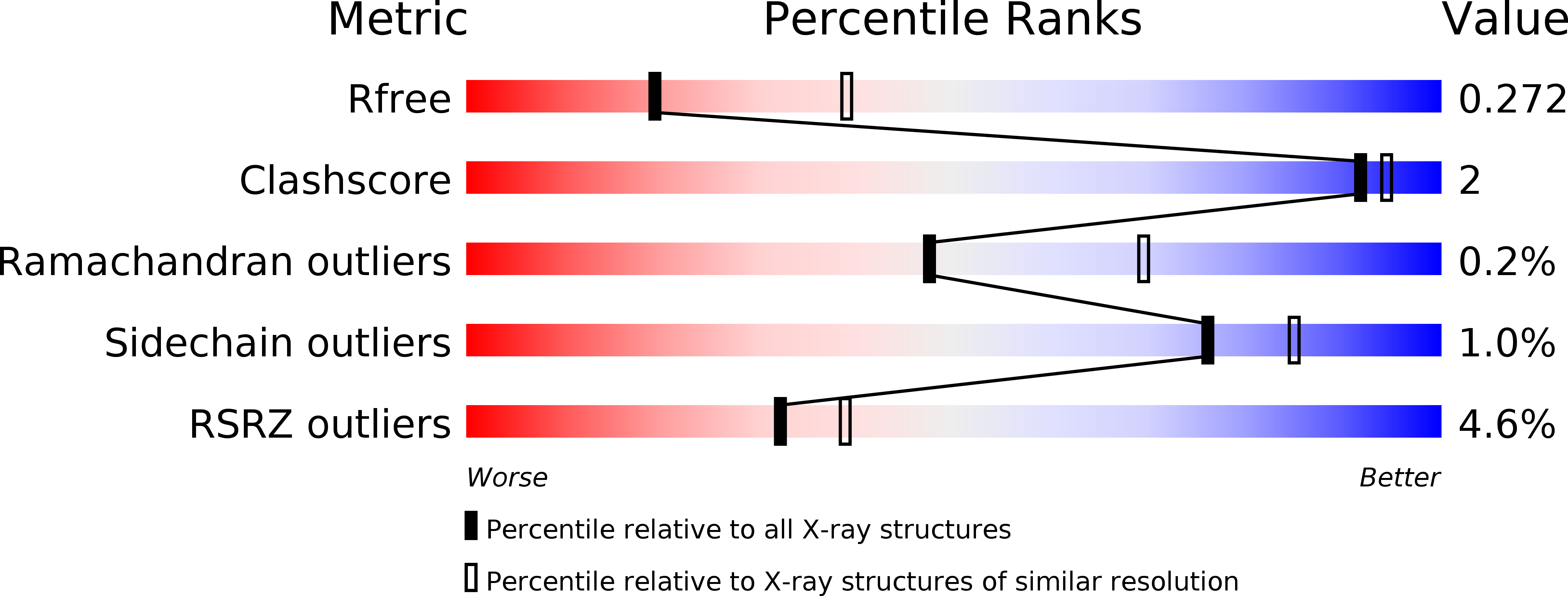
Deposition Date
2019-09-13
Release Date
2020-06-17
Last Version Date
2024-11-13
Entry Detail
PDB ID:
6SUA
Keywords:
Title:
Structure of the high affinity engineered lipocalin C1B12 in complex with the mouse CD98 heavy chain ectodomain
Biological Source:
Source Organism(s):
Homo sapiens (Taxon ID: 9606)
Mus musculus (Taxon ID: 10090)
Mus musculus (Taxon ID: 10090)
Expression System(s):
Method Details:
Experimental Method:
Resolution:
2.75 Å
R-Value Free:
0.27
R-Value Work:
0.21
R-Value Observed:
0.22
Space Group:
P 21 21 2


